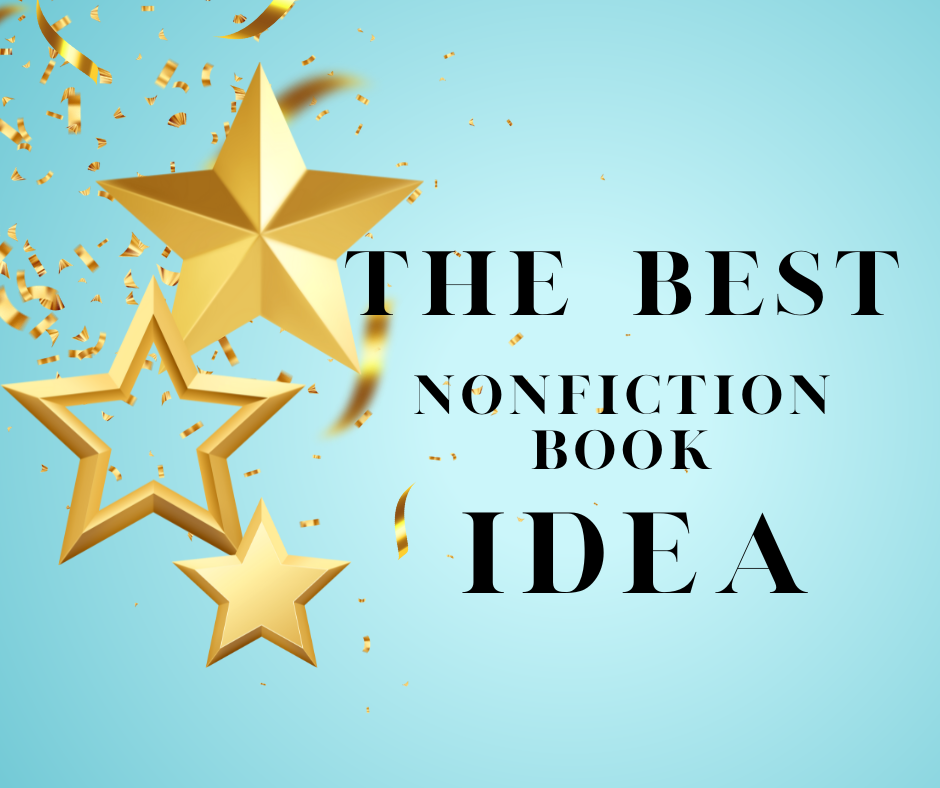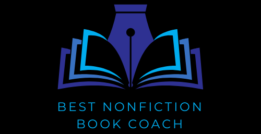
You’re looking for the best nonfiction book idea because you want the best for your readers. You do quality work.
Every great book begins with a compelling idea. The right concept can captivate your readers and is written for your audience’s level of understanding. Not only can it benefit them, but it can also establish your expertise and even transform lives. But with countless possibilities, how do you decide which idea to pursue? Whether you’re hoping to write a memoir, a self-help book, or a guide in your area of expertise, the key lies in choosing a concept that is not only meaningful to you but also marketable to your audience.
This guide will walk you through the steps to develop the best nonfiction book idea for you. It needs to reflect your passion, connect with readers, and stand out in the marketplace. By the end, you’ll have a clear pathway to your next great book concept and the tools to bring it to life.
Traits of Best Nonfiction Book Ideas
Before we get to the steps, it’s important to define what makes the best nonfiction book ideas. A great idea is one that checks these three key boxes:
- Audience Resonance: It solves a specific problem or meets a pressing need for your readers.
- Market Viability: It has a ready audience and can stand out among similar books in the market.
- Personal Alignment: It aligns with your passion and expertise, keeping you motivated throughout the writing process.
Consider bestselling nonfiction books such as How to Win Friends and Influence People by Dale Carnegie and Atomic Habits by James Clear. These books became phenomena not just because of their topics but because they offered actionable insights that resonated deeply with readers. Your book idea should aim to strike a similar chord and to be valuable for many years to come. Learn more about evergreen content and its long-term value.
Steps to Find Your Idea
Step 1: Identifying Your Passion and Expertise
The foundation of a great nonfiction book is passion combined with knowledge. Writing about a topic you genuinely care about ensures that your enthusiasm will come through on the page, making your content more engaging for readers. At the same time, your expertise lends credibility and authority, which are crucial for nonfiction success.
Reflecting on Your Personal Experiences
Start by asking yourself:
- What topics light you up and make you want to share more?
- What unique knowledge or skills do you possess that others might find valuable?
- What challenges have you overcome, and how could your insights help others?
For example, if you’ve successfully transitioned from corporate life to entrepreneurship, you might consider writing a book about overcoming fear and building a business from scratch. Your personal journey becomes the cornerstone of your message.
Check out journaling prompts that can help you uncover your passions.
Exercises to Uncover Your Passion
Need help identifying your passions? Try these exercises:
- Journaling: Write about moments in your life that brought you joy or times you felt you made an impact.
- Mind Mapping: Create a visual diagram of topics and subtopics that excite you. Tools like MindMeister can be helpful here.
- Feedback from Others: Ask friends or colleagues what they see as your strengths or unique perspectives.
By combining your passion and expertise, you create a solid foundation for a book that feels authentic and engaging to readers.
Step 2: Understanding Your Target Audience
To create the best nonfiction book idea, you need to know whom you’re writing for. A clear understanding of your audience’s needs, struggles, and desires will help you shape a book that resonates.
Ask yourself questions like these:
- Who are the people that could benefit the most from your book?
- What problems are they facing?
- Which specific outcomes do they want to achieve?
Researching Your Audience
Spend time researching your target audience. Look at forums like Quora, social media groups, or reviews of similar books to see what readers are saying. Pay attention to things like this:
- The language they use to describe their struggles—they are telling you their pain points.
- Questions they frequently ask—these reveal your audience’s level of understanding and needs.
- Gaps they identify in existing books—it often looks like complaints about what the reviewer wishes the book had in it.
Any of these can give you the best nonfiction book idea of your life. By understanding your audience on a deeper level, you can build a book that speaks directly to their needs and positions you as the ideal guide. Often, your audience will give you the best nonfiction book ideas without even knowing it.
Step 3: Narrowing Your Focus
Broad topics can overwhelm both you and your readers. Too much material leads to long books that no one will read or recommend.
Instead of going broad, narrow the topic down to a specific problem or question that your book will solve. Books that are specfic and short are more effective—unless you’re looking for doorstops or improvised weapons. In that case, I recommend buying a copy of The Chicago Manual of Style.
Specificity not only makes your book stand out in a crowded market but also helps readers understand exactly what they’ll gain from reading it.
Brainstorming Exercise
To refine your focus, list three broad topics that interest you. Under each, write three specific problems you could address. Choose the one that feels most exciting and aligns well with both your audience’s needs and your expertise. Before deciding it’s the best nonfiction book idea for you…
Step 4: Testing Your Idea’s Marketability
Not every great idea has a ready audience. Before committing to a topic, test its viability.
- Search Amazon: Are there books on similar topics? What’s missing in those books that you could provide?
- Google Trends: Check if there’s consistent interest in your subject. Visit Google Trends to explore.
- Ask Your Audience: If you have a blog, social media following, or email list, ask your audience what they’d like to learn from you.
This research ensures your best nonfiction book ideas align with what readers want and are willing to pay for.
Step 5: Evaluating the Longevity
Consider whether your idea will remain relevant over time or if it’s tied to a fleeting trend. A trend might prompt a best nonfiction book idea for you, but the trend and the book’s success will likely be short lived. Books with evergreen appeal—ones that address timeless problems or universal truths—often have a longer shelf life and greater earning potential.
Ask yourself:
- Will this topic still be relevant in five years?
- Can it grow into a series or lead to other opportunities, such as courses or speaking engagements?
Step 6: Clarifying Your Unique Perspective
Readers are looking for fresh insights, even on familiar topics. Your unique perspective is part of what sets your book apart. Think about these:
- Personal anecdotes or case studies you can share
- Actionable steps based on your unique methods
- Unexpected combinations of ideas or approaches
Brainstorming these things might generate or add to the best nonfiction book ideas for you.
Step 7: Visualizing the Impact of Your Book
Think about the impact you want your book to have:
- How will it change the lives of your readers?
- How will it establish (or further cement) you as an expert?
- How will it contribute to your growth?
Connecting your best nonfiction book idea to a deeper purpose will help you stay inspired throughout the writing process.
FAQs About the Best Nonfiction Book Ideas
1. How do I know if I have the best nonfiction book idea?
The best nonfiction book idea for you at this time solves a specific problem or addresses a unique question for your audience. If your topic resonates with readers, aligns with your expertise, and offers actionable value, it’s likely a strong concept. Validate it by researching similar books on Amazon or testing interest with tools llike Google Trends.
2. Can I work on multiple nonfiction book ideas at once?
While it’s tempting, focusing on one idea at a time usually yields better results. You can jot down additional ideas for future projects, but working on one at a time allows you to invest the necessary effort and energy to develop it fully.
3. What tools can help me research and validate my idea?
There are several tools you can use, such as:
- Publisher Rocket
- Google Trends
- AnswerThePublic
4. How do I know if my idea will sell?
Conduct market research by examining reviews of similar books on Amazon, and check data in Publisher Rocket, which is updated three times a day every day. Look for gaps in existing content and opportunities to provide a fresh perspective. Sites like Quora and Reddit can also help gauge need and interest.
5. What if I feel like my expertise isn’t enough?
Remember, readers value authenticity and actionable insights. If you’re passionate and willing to research, proceed. Your unique perspective can make your book stand out. Consider sharing personal stories or case studies, and be sure to mention and credit the sources you used for your research.
Final Thoughts
Choosing the best nonfiction book idea is just the first step. Once you’ve settled on your topic, the next step is to outline your book, plan your chapter structure, and create a roadmap for success. If you’re feeling stuck or overwhelmed, a nonfiction book coach can provide the guidance you need to bring your idea to life.
Call to Action
Ready to take the next step? Fill out our contact form today, and let’s bring your best nonfiction book idea to life!
